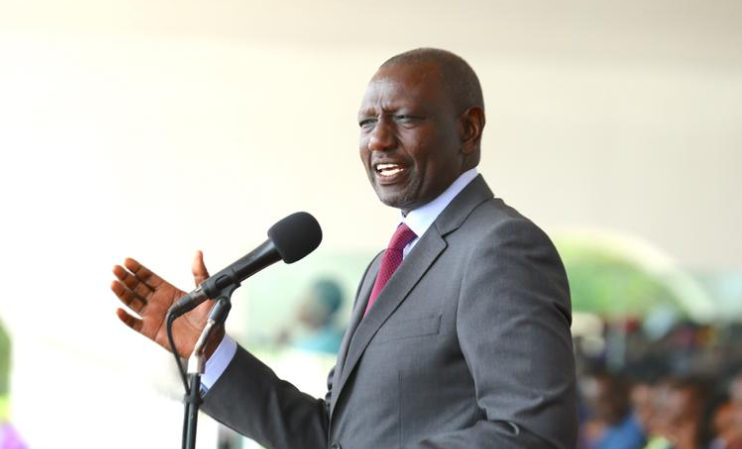Six critical issues Ruto must urgently address

Nearly two years into President William Ruto’s government, the country faces six critical issues that continue to define his first term in the eyes of a restless citizenry.
Governments must recognise that citizens have the information, knowledge, capacity, understanding and opportunity to participate to the degree they wish, in local, regional and national policymaking.
That constitutional right cannot be deprived of the people because ensuring that the government works for the public good requires informed, organised, active and peaceful citizen participation.
The first and most critical issue spiraling to others is the State of the economy and the steps the Kenya Kwanza administration has taken to address it. Kenyans have identified the Finance Act, 2023 as the cornerstone of Ruto’s economic policies.
An effective government strategy demands the participation of citizens through democratic institutions, particularly the legislative arm. People must be at the heart of Parliament and governance must be responsive to citizens.
Despite Ruto’s persistence to portray the Finance Act as the panacea to Kenya’s economic woes, citizens continue to decry its pillars and mode of implementation. The matter is not going away soon as analysts weigh the 2024/25 Budget.
Citizens’ agitation and discomfort with the Act and the creation of Chief Administrative Secretaries’ offices among other policies have been the subject of intense legal action in the courts, litigants citing among other things, their unconstitutionality.
Litigants are pursuing the citizens cry for justice that the Executive is controlling the Legislature to deprive the people of their constitutional right to fully contribute to making decisions about policy choices, public welfare, and the proper use of authority.
Whenever the people’s voices are stifled and unpopular economic policies involving taxation, distribution of resources, and State and public appointments seem to be forced on citizens, the government is naturally accused of injustice and insensitivity.
With voices stifled, the citizens’ only recourse is staging protests, and going to court to seek justice and industrial action, such as the critical issue of the doctors strike that has paralysed medical services in public health facilities for over two weeks.
Lives have been lost as the medics drop their stethoscopes and abandon surgical theatres to take to the streets demanding the government addresses 19 genuine grievances, including the Collective Bargaining Agreement signed in 2017.
The government’s reaction through Health Cabinet Secretary Susan Nakhumicha, the Council of Governors and other top State officials is widely perceived as insensitive and haughty.
It is, therefore, incumbent upon the government to shed itself of this insensitivity tag and quickly address the economic and health sector crisis as well as the four other issues negatively impacting the Kenya Kwanza administration.
These include public indignation at the sale of fertiliser with stones from the National Cereals Board depots scandal sending shock waves across the farming community and Kenya’s agricultural sector, the backbone of the national economy. Agriculture CS Mithika Linturi’s response to the crisis has been bewildering.
Add to this the unending banditry menace that continues to savage counties in the North Rift and Northern Kenya despite the oft-repeated high-profile warnings and agile activities of Interior CS Kithure Kindiki.
As the rising road carnage puts Transport CS Kipchumba Murkomen in the spotlight and Education CS Ezekiel Machogu is questioned over delays in the release of capitation money for learning institutions, President Ruto’s administration must urgently address these six critical issues.
—The writer comments on economic and governance issues
– albertoleny@gmail.com












